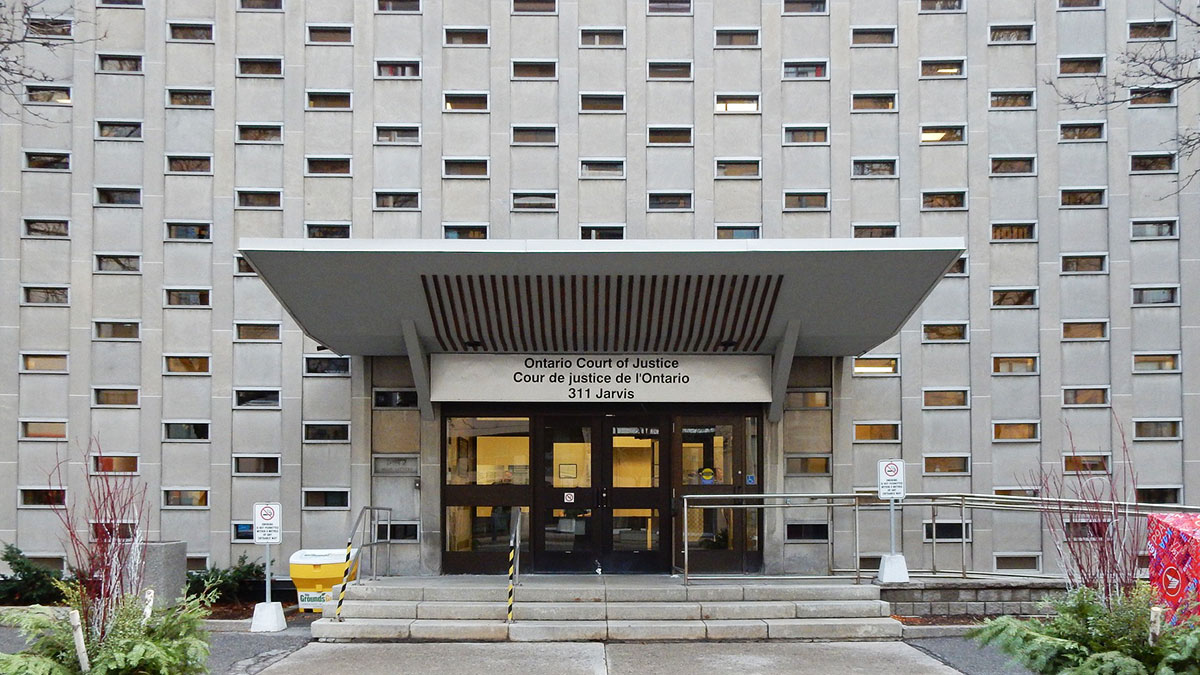 Supplied
SuppliedThis year, two decisions in Ontario Courts enraged everyone who read about them, for many different reasons.
Both cases are about dead men who wrote allegedly racist wills. In one, a black man disinherited his daughter, because she “gave birth to a child fathered by a white man.” In the other, a white man bequeathed an endowment to fund two scholarships: one for single, white, male, heterosexuals; the other for single, white, females who are not “feminist(s) or lesbian(s).”
Here’s the kicker: the Court upheld the first will, but voided the second. This means that one man’s daughter gets nothing, because she “fraternized” with a white guy, and no one gets the scholarships, because it is against “public policy” to give them exclusively to white heterosexuals.
I have simplified things a bit, but you get the point. Now, allegations of racism are probably rampant in your mind, but let us look at the issue logically.
The problem here is not that the decisions are inconsistent — that will be sorted out by a higher court — but that the Court is amending people’s wills at all. What right has the Court, in the absence of immediate harm, to decide what a person does with their stuff? A living person is free to give their stuff to whomever they like, and for whatever reason; after all, they acquired it, own it, and it is theirs to give; they could even destroy their stuff, if they want.
In the first case, the Court recognized this, saying that “distasteful, offensive, vengeful or small-minded” choices do not justify intervention. Basically, they affirmed the foundational legal principle: you can be a jerk, just don’t hurt anyone. Not only that, but they protected our liberty and our private property, neither of which should be infringed lightly.
They also avoided a slippery slope. In this instance, the facts were fairly clear-cut, but imagine if the daughter was a jerk, and the money was given to charity instead; or perhaps the father just favored his other daughter; or perhaps the disinherited daughter faked the allegations — the father is dead, who knows? The Court considered these hypotheticals, and erred in favor of caution. This was prudent.
The second case is troubling. Look at the facts, all the man did was create a scholarship with racial and gender conditions, both of which are quite common. For example, the University of Alberta Registrar lists fifteen different, privately sponsored, undergraduate awards which are earmarked for students of “Aboriginal descent.” Likewise, there are many awards for “minorities,” including “Asian,” “Black,” and “Latino” students. Clearly racial provisions are fine.
The other clause was gendered. These are also permitted: there are at least four scholarships reserved for “lesbian, gay, bisexual, trans-identified, or queer” students. Clearly gender-orientation provisions are fine. The scholarships in question cause no harm, in fact they do the opposite, and the Courts have said that “distasteful, offensive” wills are A-OK.
The Courts should back off, and just let jerks be jerks.





Having read both cases, I can confirm that they are distinguishable on public vs private grounds; indeed, the Priebe decision (the scholarship case mentioned) simply applied the law as it stood from an earlier case, wherein a scholarship for only Protestants of “British descent” were eligible.
In both cases the Court recognized the need to balance the rights of testators with those of society. They were decided differently on the ephemeral, and intellectually dubious grounds of “public policy”, which often functions as a shibboleth for activist judges.
So while I agree that it’s axiomatic that private lives are generally open to less scrutiny, I don’t believe that this should preclude a principled policy debate: why should a testamentary gift be treated differently than one given inter vivos?
I think we can both agree that if Victor Priebe had administered his scholarship in life, and vetted the candidates himself, he could have fulfilled his implicit conditions with no inconvenience; however, his death (obviously) necessitates that he make these conditions explicit, although they always hypothetically existed — is there any logic to rejecting them, aside from some people find them “distasteful” under the light of day?
Your argument that the scholarships should align with “society’s values” is exactly why I, and many others, are terrified by the prospect of judicial intervention here. I’ll canvas a few reasons: first, the Court does not reflect society’s values, they reflect a particular class of people (usually wealthy, highly-educated, elite people), whose views may or may not align with society’s; second, the Court (by which I refer to between one and nine individuals), even if they do represent a plurality, or even majority of people’s views, should not be unilaterally imposing their values on individuals; third, the Court should not be determining government “policy” as a matter of principle, given that they are not elected, nor do they serve a legislative function under our constitution.
I assume (correct me if I’m wrong), that you are against upholding the scholarships. This is fine, it is our right to disagree as individuals, but I do not believe that the State should be picking sides, nor do I think it’s wise for you to laud it for doing so: it cuts both ways, and when the currents change, and “affirmative action” scholarships are struck down as being unconstitutional, I will argue that they should be upheld.
This is the difference between a principled and a political stance, one remains logically consistent, while the other is suspended in intellectual anomie. For that reasons I would recommend you reconsider your position.
As a side-note, I would point out that women are 50% more likely to attend university, and Asian-Canadians are both wealthier, and more likely to attend university than whites etc. As a result, the supporting “disadvantaged groups” argument is not factually compelling, unless you cherry-pick your evidence.
I’ll respond inline to some of your points.
“I think we can both agree that if Victor Priebe had administered his scholarship in life, and vetted the candidates himself, he could have fulfilled his implicit conditions with no inconvenience”
— I somewhat agree to that, but death is not the deciding factor. The important factor is that Priebe is directing the use of property once he no longer has ownership. Once a trust has been created the testator has no interest in it. Scholarships are quasi-public because institutions have to support them and administer them. Exposure to the world is the critical distinction, not death. Forcing people to be racist in their private lives instead of imposing their racism on others once they die is a perfectly sound policy.
I’m going to treat our argument as “I don’t think judicial review on public policy grounds is legitimate, there isn’t any logic to it”. Seems like that captures the essence in a succinct and less pretentious way.
— Judges aren’t unilaterally imposing views. Public policy is shaped by legislation (enacted by our elected officials), international obligations, the law in other jurisdictions, and market efficiency. It isn’t really up for debate that internationally and constitutionally there is a public policy against discrimination. It’s not like Canada is the only place with a doctrine of public policy either. Every common law jurisdiction limits what you are allowed to do with your property and what you are allowed to do in contract.
when the currents change, and “affirmative action” scholarships are struck down as being unconstitutional, I will argue that they should be upheld.
— I don’t really understand the point here. The Constitution applies to government action, not testamentary gifts. If you are saying that the Constitution and the Charter inform the doctrine of public policy, then I think that is a good point and I would refer to section 15(2) of the Charter and the corresponding jurisprudence. Our Constitution expressly indicates that equality means more than just equal treatment. Programs based in affirmative action are 100% acceptable, if not encouraged, under the Constitution.
“supporting “disadvantaged groups” argument is not factually compelling, unless you cherry-pick your evidence.”
— Historically disadvantaged is the point, not what percentage of each group attends university. That is the same concept enshrined in section 15(2) of the Charter. There’s no legitimate basis for saying that women or any racial minority in Canada have an advantage over white males.
Unfortunately, your oversimplification misses an important distinction between those two cases. One involves a public, or at least quasi-public, trust, while the other is private. We make similar distinctions when it comes to the right to exclude from property. You are free to discriminate on the basis of gender or sexual orientation with respect to who can enter your own home, but you can’t run a business and refuse customers on those grounds.
Without having read the cases, I can’t say whether the public/private distinction played a role in those decisions. Even if it wasn’t a part of their reasoning, it should be an important consideration in deciding validity for these types of gifts going forward. It’s quite firmly rooted in law and common sense that what you do in your private life is afforded more deference than what you put on display for others.
You also mention scholarships that have “racial characteristics” as if they are somehow comparable to racial discrimination. As with other areas of the law, intent matters. The scholarships with racial characteristics mentioned in your article are intended to level the playing field for disadvantaged groups, rather than to promote discrimination. Drawing that line may lead to unsatisfactory results when someone can mask their true intentions, but fortunately for us, society’s most repugnant human beings often have a tough time hiding their true colours.
Do what you want in a private disposition, but if you want to set up a scholarship, make sure it aligns with society’s values.